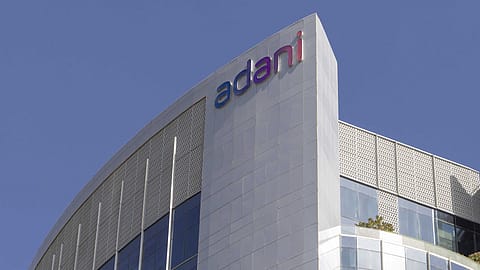Crisil upgrades ratings on Adani Power’s bank loans worth ₹38,000 cr
The credit rating agency has also assigned its 'AA/Stable' rating to ₹11,000 crore proposed non-convertible debentures (NCDs) of Adani Power.

Crisil Ratings has upgraded its rating on ₹38,000 crore long-term bank facilities of Adani Power to 'AA/Stable' from 'AA-/Positive'. The global credit rating agency has also assigned its 'AA/Stable' rating to ₹11,000 crore proposed non-convertible debentures (NCDs) of Adani Power (APL). The agency has assigned ‘stable’ outlook, citing sustained healthy operational performance over the medium term on account of healthy power demand, remunerative tariffs for most capacities tied up under long term power purchase agreements (PPA) and assured supply of captive or linkage fuel.
“The upgrade in rating reflects Crisil Ratings expectation of strengthening in APL’s overall credit risk profile with strong improvement in the business parameters on account of increase in proportion of tied-up capacities as well as fuel linkages. The same will improve revenue and cash flow visibility over the long term,” the rating agency said in a report dated February 6, 2025.
Adding to it, full recovery of pending regulatory dues, robust liquidity and sustaining of receivable position has also resulted in stronger credit metrics and financial risk profile resulting in debt service coverage ratio (DSCR) improving to more than 2x and net debt to EBITDA improving to <2.5 times in current fiscal, the report noted.
The rating also factored in the strong market position of APL given the geographically diversified portfolio of coal-based power-plants and counterparties and a healthy financial risk profile. It is one of India’s largest independent power producers with operational thermal power capacity of 17.55 GW, equivalent to 7% of the total capacity in the country.
These strengths were partially offset by exposure to risk related to lower merchant power demand and tariffs due to untied capacity (nearly 13% of total operational capacity), exposure to counterparty risk on account of weak to moderate credit profiles of some distribution companies (DISCOMS), the report noted.
As per Crisil report, the power arm of Adani group has signed up new long term and medium term power purchase agreements (PPAs) (total 1600 MW with 2 counter parties) over the past 12 months, resulting in tying up of 87% of its total 17.55 giga watt (GW) capacity compared with 80% earlier. Similarly, 60% of the total fuel requirement (91% of domestic coal requirement) is now backed by fuel supply arrangements (FSAs) versus 50% (84%) a year ago, thereby lending higher certainty to revenue and profitability of the company.
As a result, the rating agency expects APL’s consolidated operating EBITDA (recurring) at around ₹20,000 crore per annum in near to medium term. However, any moderation in power demand leading to lower-than-expected volumes and profitability for APL will remain monitorable, it added.
Recommended Stories
The company recorded ₹2,400 crore of income in first nine months of the current fiscal (9M FY2025). The company had better-than-expected EBITDA of ₹18,789 crore for fiscal 2024 and ₹16,493 crore for the first nine months of fiscal 2025.
Crisil Ratings notes that APL has significant capital expenditure (capex) in the pipeline, including organic and inorganic expansion to reach a total installed capacity of 30GW by 2030, expenditure for flue gas desulphurisation (FGD), and regular repair & maintenance. It expects operating cash accrual to be sufficient to meet the equity requirement of capex as well as annual debt obligation while maintaining its liquidity reserve and capex reserve.
The company is anticipated to have a strong net cash accrual of over ₹15,000 crore over fiscals 2025 and 2026, which should be sufficient to meet the principal debt obligation over the medium term. As of December 31, 2024, the company had unencumbered cash and liquid investments, of around ₹5,614 crore, including DSRA. The company also had fund-based working capital buffer of ₹329 crores. The company plans to utilise its surplus funds to meet its capex requirement and will be raising debt as per the requirement.
As per the report, Adani Power’s external debt reduced in fiscal 2024 due to partial prepayment and scheduled repayment through operating cash flow, including proceeds of old regulatory dues. The ratio of net external debt to operating EBITDA improved to 1.4 times as of March 2024 (around 3.3 times as of March 2023) and is expected to sustain at similar levels over the near to medium term.
(INR CR)